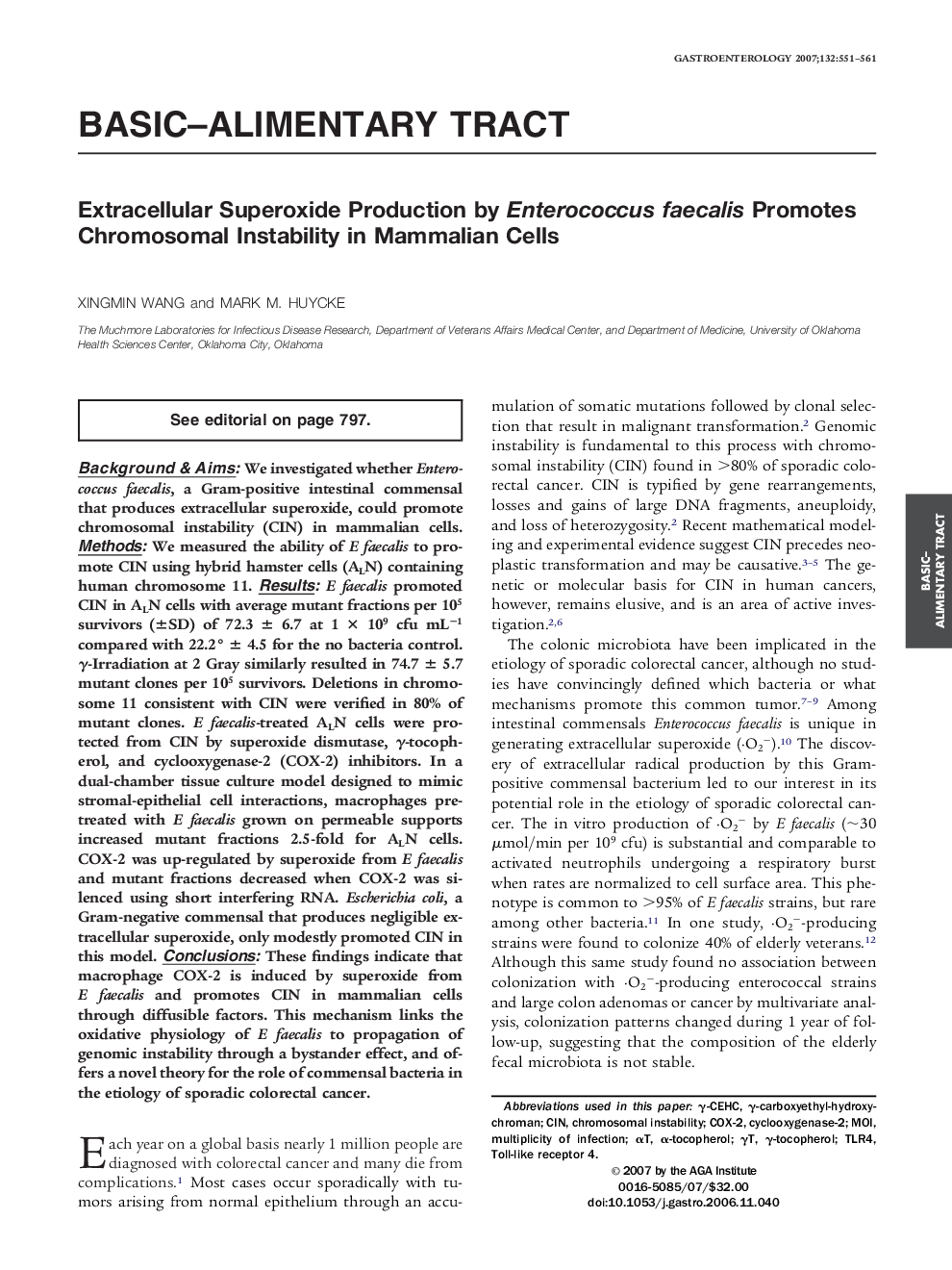| Article ID | Journal | Published Year | Pages | File Type |
|---|---|---|---|---|
| 3298620 | Gastroenterology | 2007 | 11 Pages |
Abstract
Background & Aims: We investigated whether Enterococcus faecalis, a Gram-positive intestinal commensal that produces extracellular superoxide, could promote chromosomal instability (CIN) in mammalian cells. Methods: We measured the ability of E faecalis to promote CIN using hybrid hamster cells (ALN) containing human chromosome 11. Results: E faecalis promoted CIN in ALN cells with average mutant fractions per 105 survivors (±SD) of 72.3 ± 6.7 at 1 à 109 cfu mLâ1 compared with 22.2° ± 4.5 for the no bacteria control. γ-Irradiation at 2 Gray similarly resulted in 74.7 ± 5.7 mutant clones per 105 survivors. Deletions in chromosome 11 consistent with CIN were verified in 80% of mutant clones. E faecalis-treated ALN cells were protected from CIN by superoxide dismutase, γ-tocopherol, and cyclooxygenase-2 (COX-2) inhibitors. In a dual-chamber tissue culture model designed to mimic stromal-epithelial cell interactions, macrophages pretreated with E faecalis grown on permeable supports increased mutant fractions 2.5-fold for ALN cells. COX-2 was up-regulated by superoxide from E faecalis and mutant fractions decreased when COX-2 was silenced using short interfering RNA. Escherichia coli, a Gram-negative commensal that produces negligible extracellular superoxide, only modestly promoted CIN in this model. Conclusions: These findings indicate that macrophage COX-2 is induced by superoxide from E faecalis and promotes CIN in mammalian cells through diffusible factors. This mechanism links the oxidative physiology of E faecalis to propagation of genomic instability through a bystander effect, and offers a novel theory for the role of commensal bacteria in the etiology of sporadic colorectal cancer.
Keywords
Related Topics
Health Sciences
Medicine and Dentistry
Gastroenterology
Authors
Xingmin Wang, Mark M. Huycke,
